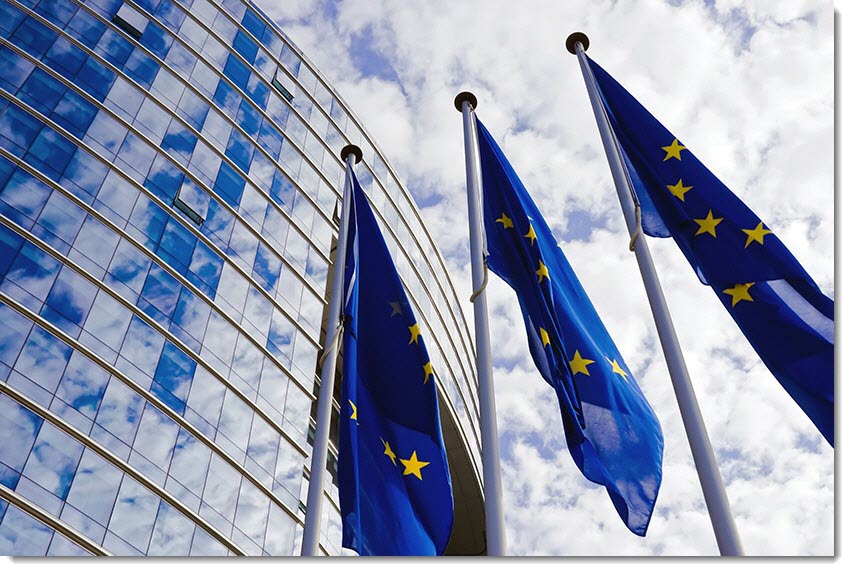
03/06/2024
EU Insight, 31 May 2024
Brussels, 31 May 2024
EU SOLIDIFIES CLEAN TECH FUTURE WITH ADOPTION OF NET-ZERO INDUSTRY ACT
The Council issued this week its final endorsement of the Net Zero Industry Act. Overall, launched in response to the US Inflation Reduction Act, the initiative aims to strengthen the EU’s net-zero technology manufacturing capacity. Concretely, the initiative aims to foster investments into EU manufacturing of net-zero technologies, and thus accelerate their deployment while securing EU supply chains. The initiative also aims to streamline the permit-granting process for designated strategic projects. All in all, the Net Zero Industry Act, represents the EU’s ambition to foster and secure a European industrial base to deliver the green transition, while remaining competitive at a global level.
NEW EU-AUSTRALIA PARTNERSHIP ON CRITICAL MINERALS
Despite negotiations on a free trade agreement put on hold in 2023, the EU and Australia this week formally signed a bilateral Memorandum of Understanding (MoU) to strengthen collaboration on critical and strategic minerals. The agreement underlines the EU’s broader objective to secure, de-risk and diversify its supply chains, particularly when it comes to raw materials critical for the green transition. Apart from facilitating trade and investment in the sector, the agreement aims to foster cooperation on research and innovation between the two jurisdictions. Lastly, the MoU aims to encourage high environmental, social and governance standards along the entire critical mineral value chain.
FRANCO-GERMAN GOVERNMENTS ALIGN AND PUT FORTH PRIORITIES FOR NEXT MANDATE
With the EU elections fast approaching, the French and German governments joined forces to generate momentum to further European integration, and feed into the EU’s Strategic agenda for the next mandate. Notably, the display of Franco-German friendship, centred around the first French state visit to Germany in 24 years, with Emmanuel Macron stopping in Berlin, Dresden, and Münster. At the same time, the two countries, proclaimed as the “European integration engine”, put forth a set of policy recommendations in a joint paper, aiming to foster growth in the EU and ensure the Union to remain competitive at a global level. These recommendations aim to better integrate the EU’s single market, as well as to reduce administrative burden for business.
EU COMMISION UNVEILS NEW AI OFFICE
The Commission unveiled its new AI Office, whose objective is to promote a trustworthy AI ecosystem which fosters innovation in the sector while mitigating potential risks. The AI Office stems from the recently adopted AI Act and will be responsible for the effective implementation of the new rules, particularly when it comes to general-purpose AI models. Moreover, the AI Office will be in charge of coordinating the development of codes of practice to guide the testing and evaluation of AI models, foster AI innovation via regulatory sandboxes, as well as manage and promote the EU’s approach to AI with international partners.
COUNCIL ADOPTS HIGH TARIFFS ON GRAIN IMPORTS FROM RUSSIA AND BELARUS
In the context of the EU’s continued efforts to hamper Russia’s war effort, the Council approved a Regulation instituting substantial tariffs on grain products imported from Russia and Belarus. Notably, while Russian grain imports to the EU remain relatively small, it could reorient significant volumes towards European markets, which would lead to significant market disruptions. As such the measure aims to safeguard the stability of the EU’s grain market. Importantly, the new tariffs also come in response to allegations that Russia illegally exports appropriated Ukrainian grain as its own. Thus, the measure also serves to curb Russian exploitation of Ukraine and restrict its export revenues.
COMING UP NEXT WEEK
- 6 June: Governing Council of the European Central Bank monetary policy meeting
Karl Isaksson, Managing Partner Brussels, Kreab
_________________________________________________________
Kreab • Tel: +32 2 737 6900 • karl.isaksson@kreab.com • www.kreab.com/brussels • X: @KreabEU • LinkedIn: Kreab Worldwide
